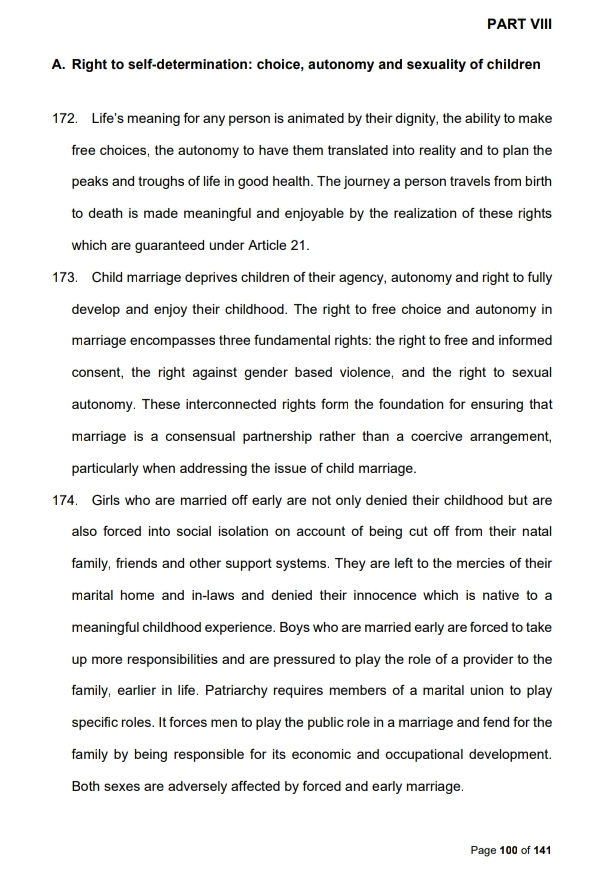The Supreme Court of India, on Friday, highlighted how child marriage systematically undermines a person's right to sexual autonomy, with the harm beginning at a young age through the sexualization of children.

A bench, including Chief Justice D.Y. Chandrachud and Justices J.B. Pardiwala and Manoj Misra, underscored the importance of free and informed consent in marriage, especially in the context of child marriage.
The court noted that child marriage robs children of their autonomy, agency, and the ability to fully develop during childhood. It stated that marriage, to be consensual, must respect three core rights: the right to free and informed consent, the right against gender-based violence, and the right to sexual autonomy.

Chief Justice Chandrachud, writing on behalf of the bench, referenced Article 16(1)(b) of the 1979 Convention on the Elimination of All Forms of Discrimination Against Women (CEDAW), which emphasizes that women need to have the cognitive capacity to fully understand the responsibilities of marriage.
The court expressed concern over the limited number of prosecutions under the Prohibition of Child Marriage Act, pointing out that the practice still persists in violation of the court’s earlier rulings.
The bench also highlighted the detrimental impact of child marriage on education, noting that the interruption in a girl's education during a critical stage of brain development has lasting consequences.
This practice, according to the court, objectifies children and imposes adult responsibilities on them prematurely.
Furthermore, it deprives young girls of their right to sexuality, bodily autonomy, and the freedom to make personal choices, often in the name of protecting social values like "chastity" and "virginity."
The court criticized patriarchy for creating oppressive structures in society, observing that child marriage forces young women into rigid gender roles and denies them the ability to explore their sexuality naturally.

This, the court said, ultimately stifles their development and freedom, compelling them to conform to societal norms at an age when they should be learning from life experiences.

Yorumlar